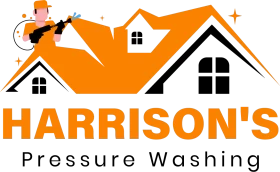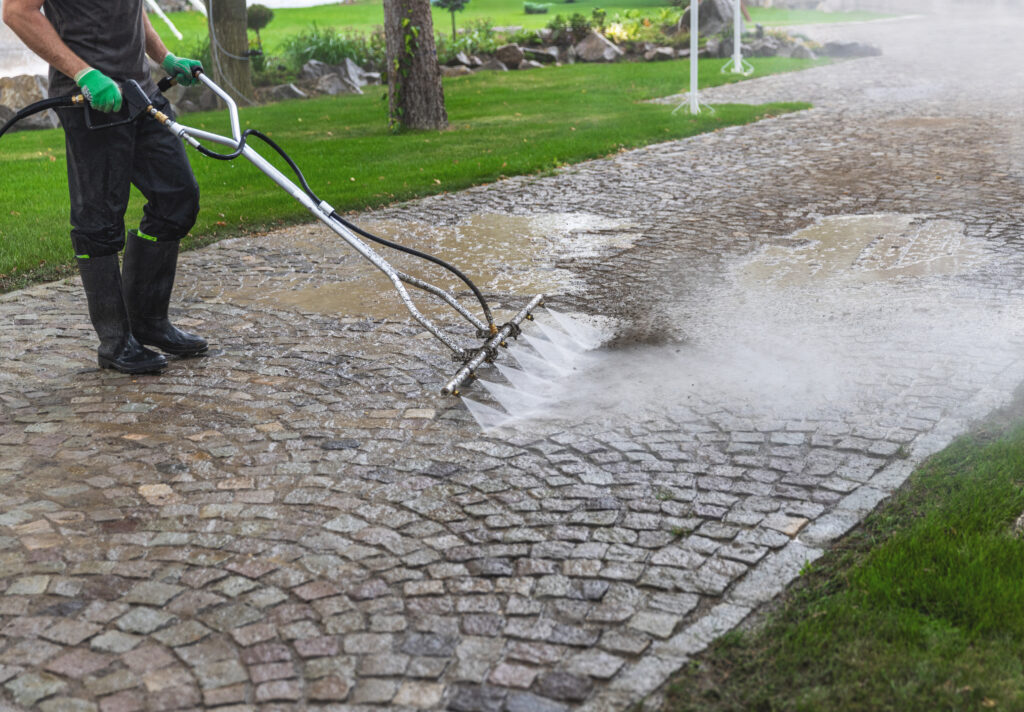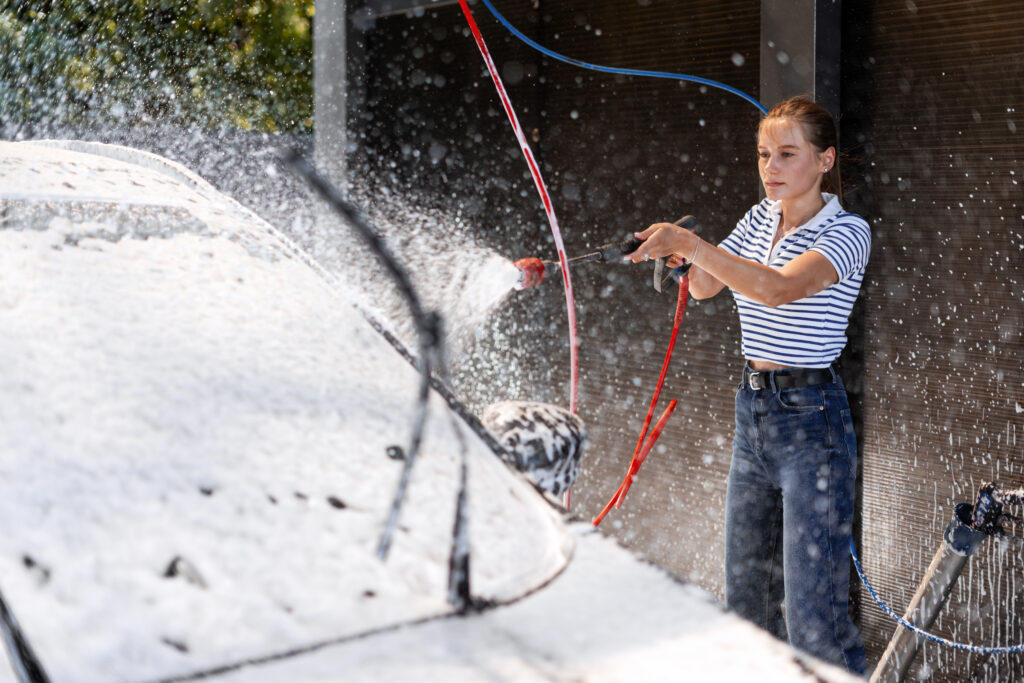“Power washing” ranks right at the top of the list when the debate over what seasonal home maintenance chores homeowners should and shouldn’t tackle themselves begins. At Harrison’s Pressure Washing, that’s a question we frequently hear from customers who aren’t sure whether power washing is worth the effort. The truth? Few people say yes, and they might be right. In this blog, you’ll learn about why power washing isn’t always a good choice for homeowners, and what alternative they should go for.
Why Power Washing isn’t Always the Solution?
Although power washing can instantly renew any area of your home in no time, very few people do this.
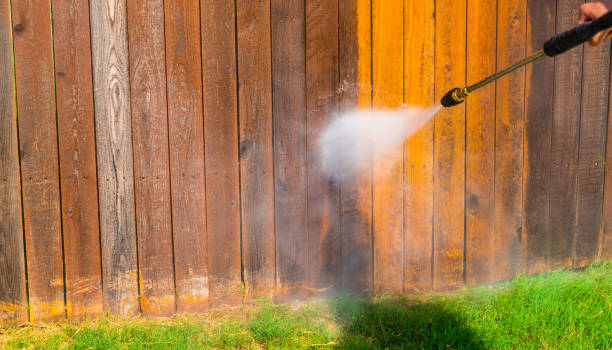
Here’s why power washing isn’t the answer to all the prevailing home issues.
- Short Term Results: Long Term Consequences
Years of grime, mildew, and dirt can be blasted away in minutes with a power wash. But the shiny new appearance frequently doesn’t last. If you don’t seal or perform some type of preventive maintenance, the surfaces could easily revert to their original state within a few days, rendering the wash a limited-term solution.
- Surface Damage
The biggest worry is that you could end up damaging your property. High-pressure water can erode soft wood, crack old bricks, soften mortar, and even inadvertently peel paint. Vinyl siding and concrete can withstand pressure better, but older surfaces or those with pre-existing damage may be severely damaged.
- Environmental Impacts:
Power washing requires a significant amount of water; at times, hundreds of gallons in a single session. The runoff can carry hazardous chemicals, mold, or paint chips into storm drains and local waterways. Homeowners with a sustainability focus typically opt for gentle and eco-friendlier types of cleaning.
Continue reading to learn more about the cost-benefit equation of power washing.
Power Washing: The Cost Vs Benefit Equation
A professional power washing service can cost $250 to $600 or more, depending on the size of your house and the surfaces being cleaned. Though DIY power washing may seem cheaper, the expense of renting or buying equipment and purchasing cleaning solutions adds up quickly.
The benefit? Enhanced curb appeal, potential higher home value if you are selling, and the elimination of unhealthy mold or algae. But for the most part, those benefits don’t outweigh the risks and costs, which is why most people don’t consider power washing worth it for regular maintenance.
When Power Washing Makes Sense?
But for all of its downsides, there are instances when power washing might be the best option:
- Painting or Staining Prep: Scrape away old paint and debris to ensure new coats adhere properly.
- Heavy Mold, Mildew, or Algae coverage: Particularly on concrete driveways, patios, or fences.
- Selling your Home: A clean exterior can enhance curb appeal and first impressions.
- Post-Construction Clean-up: This service is for cleaning after a new construction or renovation project.
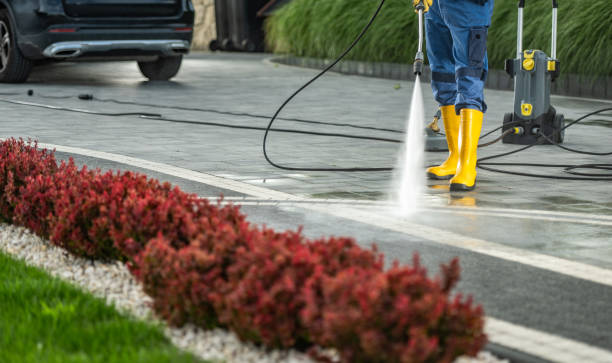
Alternatives to Power Washing: Methods to Use
If high pressure makes you nervous, there are gentler alternatives:
| Manual scrubbing: Time-consuming yet ultimately effective, especially with more fragile surfaces.Steam cleaning: Excellent for removing grime without the use of harsh chemicals.Soft washing: utilizes less pressure, along with biodegradable soaps, to clean surfaces safely. |
These options may be more time-consuming, but they can help to spare your surfaces from extended wear.
Conclusion
Power washing may have undeniable benefits in some situations. Still, the hidden costs and potential damage mean homeowners often ask: Is it worth it as part of a regular maintenance routine? If you’d like to learn more, please contact a professional for assistance on this matter.
FAQs
Does power washing add value to your house?
Only a little and only briefly. It adds curb appeal, which can make your house easier to sell; however, the impact is usually not huge or long-lasting.
Is it safe to pressure wash wood decks?
It can be risky. Fire hydrants are also designed to withstand high pressure that could splinter wood or rip through protective coatings. Soft washing or light scrubbing is usually the better option.
How frequently should I power wash my house?
According to experts, every 1–3 years, depending on your location, weather conditions, and the type of siding. Use: Too much will shorten the life of your surfaces.
Can I power wash on my own?
Yes, but it requires caution. Faulty use may lead to damage to surfaces or injury. For sensitive areas, consider hiring an expert.
What surfaces should you not power wash?
High pressure could easily damage asphalt shingles, old bricks, crumbling mortar, painted wood, and some types of stucco.
